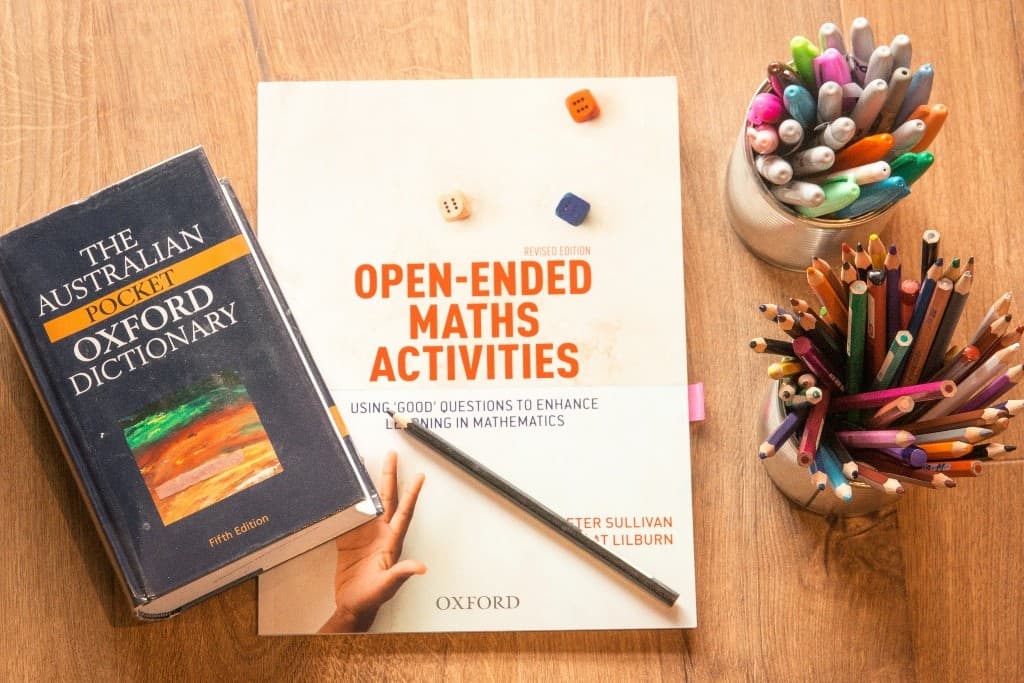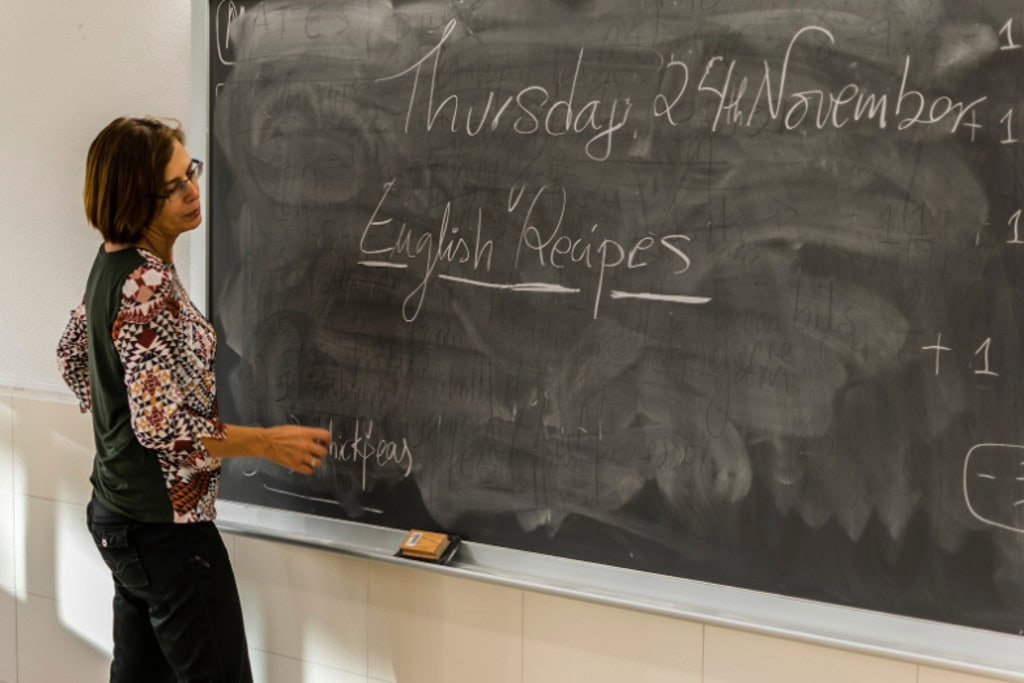
So you graduated from university with a degree in English Literature, and now is the time to kickstart your career path. But what does it really mean to study this subject? What possible career opportunities does it offer?
Earning a degree in English Literature is an enriching experience that develops a deep understanding of language, culture, and history. This degree cultivates critical and creative skills, making you a versatile candidate in the professional world. From analyzing British literature to exploring contemporary works, you gain a comprehensive understanding of various historical periods and cultural narratives. The analytical and creative skills you acquire open doors to a wide range of career opportunities, including roles in creative writing, public relations, marketing, teaching, and more. Whether you aspire to be a content writer, social media manager, or technical writer, the possibilities are vast. Your degree also positions you well for postgraduate study, further enhancing your career prospects.
When you attended your English literature courses, semester after semester, you immersed yourself in reading sonnets and poetry, critiquing classic novels and modern literature, and engaging with diverse literary theories. This rigorous academic journey, filled with readings by renowned theorists and famous writers, has equipped you with valuable skills and a deep passion for literature. So, what’s next?
Receive weekly updates about universities, scholarships, and educational events directly into your inbox – no spamming!
In this article, I offer you a wide range of careers that you may pursue after graduating with your Bachelor of Arts in English Literature:
Skills Developed with an English Literature Degree

Graduating with an English Literature degree provides a broad range of valuable skills that are highly sought after in many professions. Analyzing complex texts enhances your analytical skills, a core aspect of your academic training. Engaging with various literary works, from classic novels to contemporary texts, involves dissecting intricate arguments and interpreting diverse themes and narratives. This rigorous analysis sharpens your ability to evaluate information critically, a skill that is indispensable in any analytical role.
The degree also places a strong emphasis on developing communication skills, which are crucial across virtually all fields. Throughout your studies, you are required to write essays, deliver presentations, and participate in discussions, all of which help refine your ability to convey ideas clearly and persuasively. These experiences not only improve your written communication but also enhance your verbal articulation, making you adept at presenting arguments and engaging in intellectual discourse.
Moreover, the skills gained from studying English Literature are highly transferable and applicable to various industries. The research and organizational skills you develop are essential in many roles, from project management to research analysis. Literary studies teach you adaptability and problem-solving, preparing you to handle complex information and apply these transferable skills in diverse professional settings.
Interpersonal skills are another significant benefit of an English Literature degree. Collaboration on group projects and engaging in peer discussions foster strong interpersonal abilities. Through literary analysis, you develop empathy and a deeper understanding of different perspectives, which enhances your capacity to work effectively with others and navigate complex social dynamics in any professional environment.
Specializations and Further Study

Pursuing further education after obtaining your degree in English Literature can significantly enhance your career prospects and deepen your expertise. Advanced degrees offer numerous benefits, including specialized knowledge and greater career flexibility. For those interested in literature, creative writing, or education, postgraduate study provides opportunities to refine your skills and explore new areas of interest. Popular postgraduate courses and specializations include advanced studies in literature, creative writing, and education, each offering distinct advantages for career advancement and personal growth.
In the realm of literature, specializations can greatly enrich your academic and professional journey. Delving into areas such as contemporary literature, British literature, or literary history allows you to gain a deeper understanding of specific literary periods and movements. This focused approach not only enhances your expertise but also prepares you for roles that require specialized knowledge and analytical skills.
When considering further study, selecting a reputable educational institution is crucial. Utilizing resources like QS World University Rankings can guide you in choosing a top-ranked university known for its high-quality teaching and strong academic reputation. The quality of teaching at a university plays a significant role in your overall success, making it essential to consider institutions that are recognized for their excellence in education.
Career Paths for English Literature Graduates
1. Freelance writer

This is one of the most versatile jobs you can have. With strong writing skills, you may find a wide variety of writing opportunities for an online magazine, a blog, a student who needs help editing their paper, and the list goes on. This option offers freedom and flexibility to work as much as you want, whenever you want. On average, your income may reach a rough $40,000-50,000 a year.
2. Public relations and marketing

One of the main qualities this job entails is engaging in creative writing and being critical, both of which are skills you have already mastered during your four-year academic journey. You will need to write press releases to be published, or perhaps create a new vision for your company or a slogan for a product. The prospects here would be great if you pair your degree with a minor or double major in business, be that marketing, economics, or even philosophy. These will allow you to grow in this field with the potential of becoming a marketing manager or PR specialist.
3. Teacher/Instructor/Professor

This is a very common approach and perhaps the most thought of amongst English language and Literature graduates. But you need to know that most schools require some teaching certification alongside your English degree. Here you may start your career teaching elementary and then progress, with more experience to teach middle school and high school. Nevertheless, do not mistake teaching for an easy job. It is a quite challenging career that requires perseverance and dedication. Given a 5-year experience or more you may be able to (depending on the country where you live) teach as an instructor at a university or college level. Of course, you can always acquire a higher degree (MA or PhD) which amongst other things, will allow you to teach what you were once being taught!
4. Copywriter or editor

The span of what these two words can offer in the form of a career is very broad. You can be an editor for a weekly/monthly, online/print magazine, or your local newspaper. You will read many articles, and depending on the specifics of your job description, you will have to fix errors, make it more reader-friendly, or decide whether it should be published tab all. You can be an editor at a publishing house, where you will have to read a large number of books or novels to proofread them or even to help pick certain ones that you think might have the potential to be the next hit in the market.
As a copywriter, you will have to produce content, as opposed to fixing it. Here you may find that someone else will have to read your work to decide whether it is good or needs editing. Again, depending on the place of employment your content creation will differ. Some content will be written to sell, while another to inform. If you are a digital content creator you may write small concise sentences to use on social media platforms, but if your job is to describe new products you may need to write so much more than a couple of sentences.
5. Librarian

The apple does not fall far from the tree, so if you decide to be a librarian you will be working beside the books that you love, taking care of them, keeping them pristine, and haunting anyone who fails to return them. Of course, your job involves more than just that as you will have to read all new entries into the library to see on what shelves they fit best. You will also have to see what age groups will be allowed to read the contents of the book. Librarians are also involved in a lot of research where they help students, teachers, and professors with their work.
Now the list of jobs and career opportunities does not end here. Below you will find more possible jobs, that are either directly related to the degree in English Literature or where this degree may be very useful.
Additional Career Opportunities
Talent Agent
As a Talent Agent, you connect talented individuals with opportunities across various industries. This role requires strong interpersonal and organizational skills to effectively match clients with suitable roles and manage relationships with industry professionals. Your ability to navigate different sectors and understand the needs of both talent and employers is crucial for success in this field.
Journalist
Journalists are responsible for reporting news, writing articles, and conducting interviews. This career demands a deep passion for literature and strong analytical skills to uncover stories and present them engagingly and accurately. The ability to research, write compelling narratives, and stay updated on current events is essential for a successful journalism career.
Private Tutor
Offering personalized education and support, Private Tutors provide tailored learning experiences to students. This role allows for flexibility in work hours and has the potential for high earnings, depending on your expertise and the number of students you tutor. The ability to adapt teaching methods to individual needs is key to helping students achieve their academic goals.
Researcher
Researchers conduct in-depth studies across various fields, including literature and social sciences. This position requires a comprehensive understanding of the subject matter and strong analytical skills to gather, interpret, and present research findings. Researchers often contribute to academic publications, reports, and studies that advance knowledge in their chosen fields.
Education Consultant
Education Consultants advise institutions and students on academic strategies and career planning. Combining communication skills with a solid academic background, this role involves assessing educational needs, recommending improvements, and helping students navigate their educational journeys. Effective consulting can significantly impact students’ academic and career trajectories.
Paralegal
Paralegals assist lawyers with research, document preparation, and case management. They utilize analytical and organizational skills to support legal teams and ensure that all necessary documentation is accurate and timely. This role is crucial in the legal field, providing support that contributes to the successful handling of legal cases.
Translator
Translators work on translating written content between languages, requiring proficiency in foreign languages and a deep understanding of cultural nuances. This role involves converting text from one language to another while maintaining the original meaning and context. Cultural understanding and language skills are essential for effective translation.
Social Media Specialist
Managing social media accounts and creating engaging content is the core of a Social Media Specialist’s role. Combining writing skills with digital marketing knowledge, this position involves developing strategies to increase brand visibility and engagement on various social platforms. The ability to analyze social media metrics and adapt strategies accordingly is key to success in this role.

As an English graduate, you possess a unique set of skills that can open doors to a wide variety of fields. Your journey through literature has not only honed your analytical and communication abilities but also prepared you for diverse career opportunities. Whether you choose to delve into creative writing, public relations, or education, the adaptability of English majors positions you for success. Networking opportunities in these fields can further enhance your career prospects, aligning with your career goals and academic success. Embrace the versatility of your degree, and leverage your skills to carve out a fulfilling professional path.
Studygram™ – Trusted source of educational news and gateway to worldwide education.
Subscribe to our newsletter to receive weekly updates about universities, scholarships, and educational events directly in your inbox


